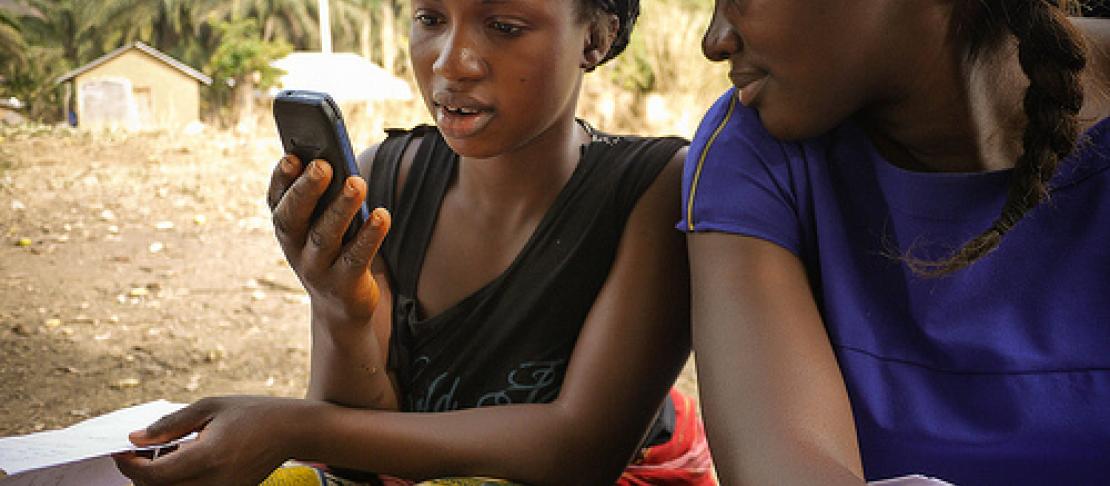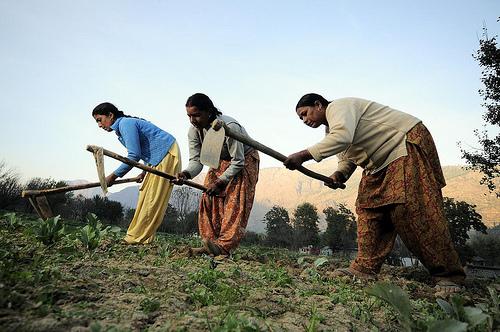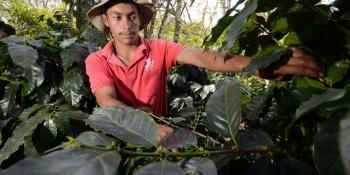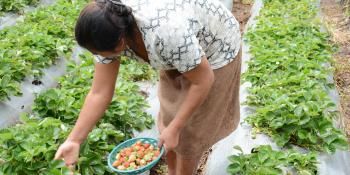Is gender being considered within climate services?

by Sarah McKune and Chesney McOmber
In a world that is rapidly becoming more connected through the internet, mobile phones and other Information Communication Technologies (ICTs), climate information has a new potential to reach farmers in rural communities worldwide and make a significant difference in their ability to successfully adapt to their changing environment.
However, despite the great potential of emerging communication technologies, the question remains whether those farmers who are most vulnerable to environmental shocks are able to access and utilize the tools to effectively manage the associated risk.
Among the farmers most vulnerable to the effects of climate change are women, who make up an estimated 43% of the agricultural labor force in developing countries.
Gender and climate information - closely connected
Women participate in agricultural activities to varying degrees around the world, in ways that are often very context specific.
Despite significant variation, women’s engagement in agricultural production is widespread, and, therefore, it is crucial that researchers and development practitioners understand, how women access information, what type of information they want, and need, but also how to effectively engage them in the processes that diffuse climate information.
Our latest working paper "Investigating climate information services through a gendered lens", is written by an interdisciplinary team of researchers at the University of Florida who seek to examine how gender is, or isn't, being considered in the current understanding of climate information services.
It identifies barriers and possible opportunities for more effectively engaging marginalized groups, including women in the area of climate information. Thereby increasing the benefit of climate information services to groups, such as women farmers.

'Hybride' of information could be the way forward
The paper demonstrates how and why women farmers are overwhelmingly left out of the communication channels that at the same time are critical to their ability to adapt.
Going forward, the paper proposes that a context-dependent, 'hybridization' of traditional methods of communication, familiar to communities, and modern technologies, which can be useful in sharing new scientific, climate knowledge with farmers.
These hybrid methods of communication provide an avenue for participation, in the production and dissemination of information within communities. This could prove to provide an opportunity for stakeholders to engage with both local and institutional knowledge in their efforts to adapt to a changing climate.
By using case studies and including a discussion of agricultural extension services, this paper concludes that when coupled with local social networks and traditional methods of communication, new ICTs can be effective tools for sharing climate information with women farmers.
Watch a video illustrating our work in Kaffrine, Senegal, where farmers and researchers work together to find climate services that meet the needs of farmers.
Read the paper: Investigating climate information services through a gendered lens, by McOmber C, Panikowski A, McKune S, Bartels W, Russo S. 2013. Investigating climate information services through a gendered lens. CCAFS Working Paper no. 42.
Interested in gender? Visit our dedicated page to get the latest on gender in the context of agriculture and climate change.
Share this on Twitter: New @cgiarclimate study shows how & why women farmers are left out of climate communications channels: http://ow.ly/knHem #ag4dev
Sarah McKune is a postdoctoral researcher focusing on integrating gender and other socially vulnerable groups into CCAFS Theme 2, located at the University of Florida, and Chesney McOmber is a Graduate Assistant at the same University. Want the latest on climate service research? Then visit our blog.


